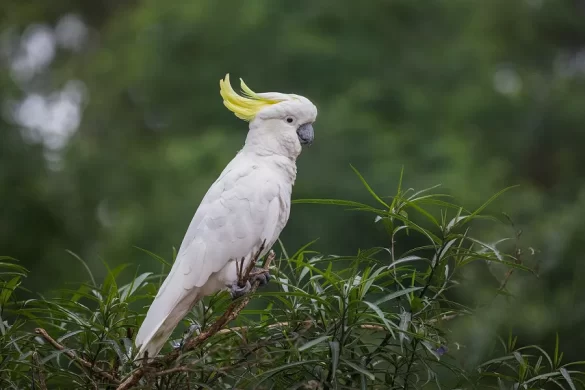Cockatoos are intelligent and charismatic birds that make wonderful companions for dedicated pet owners. However, owning a cockatoo comes with certain responsibilities. To ensure a happy and healthy life for your feathered friend, it is crucial to understand the things you should not do when caring for a cockatoo. In this article, we will highlight ten essential guidelines to help you avoid common mistakes and provide the best possible care for your cockatoo.
1. Avoid Neglecting Social Interaction:
Cockatoos are highly social creatures that require daily interaction and stimulation. Failure to provide sufficient attention can result in loneliness and behavioral problems such as feather plucking or excessive screaming. Make sure you spend quality time bonding with your cockatoo through playtime, training sessions, and regular out-of-cage activities.
2. Do Not Ignore Proper Diet and Nutrition:
A well-balanced diet is crucial for the health of your cockatoo. Avoid feeding your bird a diet that primarily consists of seeds, as this can lead to malnutrition. Instead, offer a variety of fresh fruits, vegetables, high-quality pellets, and a limited amount of seeds as treats. Consult an avian veterinarian to ensure you are providing the optimal diet for your cockatoo’s specific needs.
3. Never Use Physical Punishment:
Using physical punishment, such as hitting or yelling at your cockatoo, is not only ineffective but also harmful. These actions can damage the trust and bond between you and your bird, leading to fear and anxiety. Positive reinforcement techniques, such as rewards and praise, are far more effective for teaching desired behaviors and maintaining a strong relationship with your cockatoo.
4. Avoid Unsafe Enclosures:
Cockatoos are curious and intelligent birds that require a spacious and enriching environment. Avoid confining them to small cages or using cages with widely spaced bars that could potentially injure them. Ensure the cage is of appropriate size, with plenty of toys, perches, and opportunities for mental stimulation. Cockatoos also need regular exercise outside the cage, so provide a safe and supervised area for them to explore.
5. Do Not Neglect Regular Veterinary Care:
Routine veterinary check-ups are vital for monitoring your cockatoo’s health and identifying potential issues early on. Neglecting regular visits can result in undetected illnesses and preventable complications. Find an avian veterinarian experienced in treating cockatoos and follow their recommended vaccination, parasite prevention, and wellness examination schedule.
6. Avoid Exposure to Harmful Substances:
Cockatoos are extremely sensitive to toxic substances. Keep your bird away from household cleaners, aerosol sprays, scented candles, and other chemicals that can release harmful fumes. Some common foods like chocolate, avocado, caffeine, and alcohol can be toxic to birds and should never be given to your cockatoo. Additionally, avoid smoking around your bird as secondhand smoke can have severe health consequences.
7. Do Not Allow Unsupervised Interactions with Other Pets:
While cockatoos can form strong bonds with other pets, it is essential to supervise all interactions to prevent accidents or aggression. Dogs and cats, although well-meaning, may harm or stress your cockatoo unintentionally. Always supervise introductions and provide a safe space where your cockatoo can retreat if needed.
8. Avoid Inconsistent Rules and Boundaries:
Establishing consistent rules and boundaries is crucial for your cockatoo’s well-being. Inconsistent training or allowing undesirable behaviors occasionally can confuse your bird and hinder its ability to learn. Set clear guidelines for acceptable behavior and reinforce positive actions consistently.
9. Do Not Neglect Mental Stimulation:
Cockatoos are highly intelligent birds that require mental stimulation to thrive. Failure to provide adequate mental enrichment can result in boredom, leading to destructive behaviors. Offer a variety of toys, puzzles, and activities that challenge your cockatoo’s problem-solving skills and keep them engaged.
10. Avoid Overlooking Flight Opportunities:
Cockatoos are natural flyers and benefit greatly from regular flight exercises. Trimming their wings excessively or denying them the opportunity to fly can lead to physical and psychological health issues. Consult with an avian veterinarian or an experienced bird trainer to determine the appropriate level of wing trimming or explore alternative methods such as harness training to ensure safe flight experiences.
Conclusion:
Owning a cockatoo is a rewarding experience, but it comes with great responsibility. By avoiding these ten common mistakes, you can create a nurturing environment for your feathered companion. Remember to prioritize social interaction, provide a balanced diet, offer a stimulating environment, and seek pro


 Facebook
Facebook  Instagram
Instagram  Youtube
Youtube 